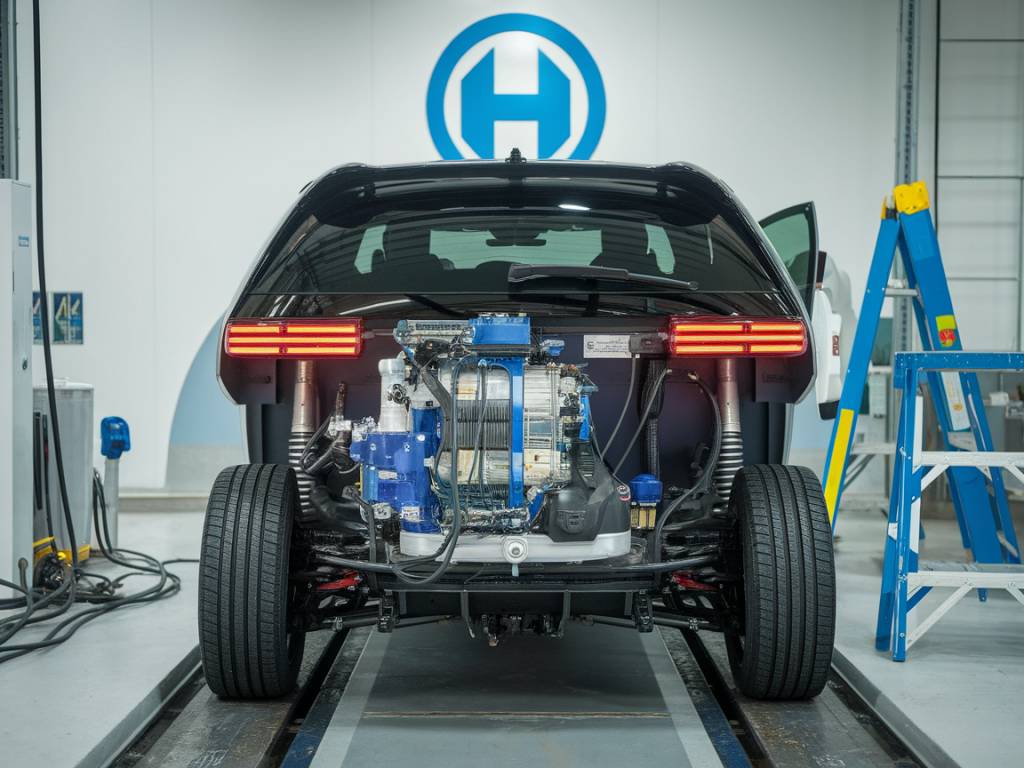In the quest for sustainable and environmentally friendly solutions, hydrogen fuel cells are increasingly being considered for transport fleets. This clean energy technology offers numerous benefits, including zero emissions, longer driving ranges, and quick refueling times. As the transportation sector is a significant contributor to greenhouse gas emissions, adopting hydrogen fuel cells can play a crucial role in reducing the carbon footprint of transport fleets.
Understanding Hydrogen Fuel Cells
Hydrogen fuel cells generate electricity through a chemical reaction between hydrogen and oxygen. This reaction produces water vapor as the only byproduct, making it an exceptionally clean energy source. Unlike batteries, which store energy, fuel cells continuously produce electricity as long as hydrogen is supplied, providing a reliable and consistent power source for vehicles.
Advantages of Hydrogen Fuel Cells for Transport Fleets
There are several compelling reasons to integrate hydrogen fuel cells into transport fleets:
- Zero Emissions: Hydrogen fuel cells produce only water vapor, eliminating the release of harmful pollutants and greenhouse gases.
- Longer Range: Vehicles powered by hydrogen fuel cells can achieve longer driving ranges compared to battery-electric vehicles, making them ideal for long-haul routes.
- Quick Refueling: Refueling hydrogen vehicles takes only a few minutes, similar to traditional gas-powered vehicles, ensuring minimal downtime for fleet operations.
- Energy Efficiency: Hydrogen fuel cells have a higher efficiency rate compared to internal combustion engines, leading to better fuel economy and lower operational costs.
- Noise Reduction: Hydrogen fuel cell vehicles operate quietly, reducing noise pollution in urban areas and contributing to a quieter environment.
Challenges and Solutions in Hydrogen Fuel Cell Adoption
While the benefits are evident, there are challenges associated with the adoption of hydrogen fuel cells for transport fleets:
- Infrastructure Development: The lack of a widespread hydrogen refueling infrastructure can be a barrier. However, investments in hydrogen stations are increasing, with many governments and private entities recognizing the potential of hydrogen energy.
- Production and Storage: Producing, storing, and transporting hydrogen efficiently and safely is still a challenge. Advancements in green hydrogen production, such as electrolysis powered by renewable energy, are making clean hydrogen more accessible.
- Cost: The initial cost of hydrogen fuel cell vehicles and infrastructure can be high. However, ongoing research and economies of scale are expected to reduce costs over time, making hydrogen technology more affordable and competitive.
Current Applications of Hydrogen Fuel Cells in Transport Fleets
Several sectors are already exploring and implementing hydrogen fuel cells in their transport fleets:
- Public Transit: Cities like Los Angeles and Tokyo are deploying hydrogen-powered buses to reduce urban air pollution and meet climate goals.
- Logistics: Companies such as Amazon and UPS are testing hydrogen fuel cell delivery trucks to enhance fleet efficiency and sustainability.
- Material Handling: Hydrogen-powered forklifts are gaining traction in warehouses and distribution centers, offering quick refueling and longer operating times.
- Maritime: Hydrogen fuel cells are being developed for ships, providing a clean alternative to traditional marine fuels and reducing emissions in maritime transport.
- Aviation: While still in experimental stages, hydrogen-powered aircraft promise a future of sustainable air travel.
Government Initiatives and Policies
Governments around the world are recognizing the potential of hydrogen fuel cells and are implementing policies to promote their adoption:
- Subsidies and Incentives: Various countries offer financial incentives, such as tax credits and grants, to encourage the purchase of hydrogen fuel cell vehicles and the development of refueling infrastructure.
- Research and Development: Governments are funding research programs aimed at advancing hydrogen technology and making it more cost-effective and efficient.
- Regulations and Standards: Developing robust regulations and industry standards for hydrogen production, storage, and refueling is crucial for ensuring safety and reliability.
Future Prospects of Hydrogen Fuel Cells in Transport Fleets
The future of hydrogen fuel cells in transport fleets appears promising as advancements continue and adoption rates increase.
- Technological Innovations: Ongoing R&D is likely to result in more efficient, durable, and cost-effective hydrogen fuel cells, further enhancing their viability for transport fleets.
- Collaborations and Partnerships: Collaboration between governments, private companies, and research institutions can accelerate the development of hydrogen infrastructure and technology.
- Renewable Hydrogen Production: Expanding the use of renewable energy sources for hydrogen production can ensure that hydrogen fuel cells remain a truly green energy solution.
- Global Adoption: Increasing global recognition of hydrogen’s potential can lead to widespread adoption, driving down costs and encouraging innovation across industries.
Hydrogen fuel cells offer a sustainable and efficient solution for transport fleets seeking to reduce their environmental impact. By overcoming the initial challenges and leveraging ongoing advancements, hydrogen technology has the potential to revolutionize the transportation industry and contribute significantly to global sustainability goals. As investments in infrastructure and technology continue to grow, hydrogen fuel cells will likely become an integral part of a clean and efficient future for transport fleets worldwide.



